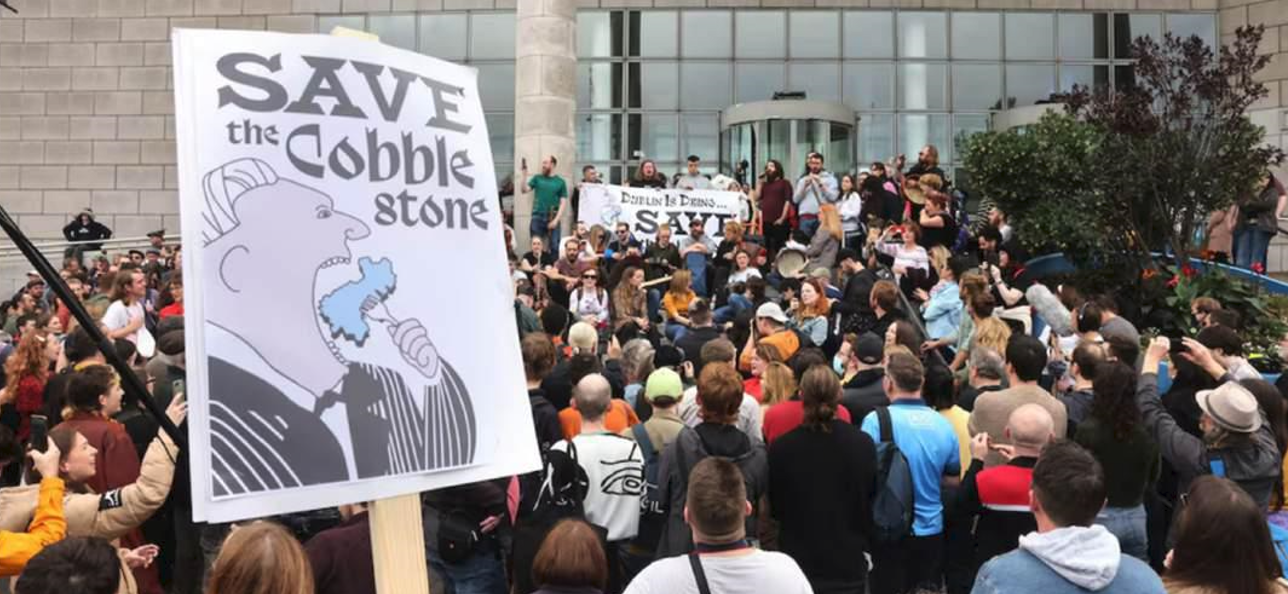Introduction
Ireland has an extraordinarily rich cultural history and yet our investment in Arts and Culture is way behind other EU countries. Huge numbers of our artists, actors, musicians, film workers and crews suffer low incomes and insecure employment conditions. People Before Profit would bring the funding for cultural services, broadcasting, and publishing services closer to the EU average of 0.9% of GDP.
Funding
Ireland has a rich history of literature, drama, music, and dance among the many other arts. These are significant cultural elements that help us establish our identity and bring joy to the people, but very often artists must rely on their own resources to fund their art. It is especially detrimental to our culture if artists are unable to create due to the lack of funding or due to their economic conditions.
People Before Profit would provide additional funding to the Arts Council to increase the support for the arts and in particular new media art forms such as for computer animation, digital art, and video games, and expand allocation of funding to more artists. Further funding will be allocated to local councils and schools specifically for culturally relevant art-related projects and to expose young people and disadvantaged communities to artistic and cultural practice. In total, additional funding going to arts and culture will be €370 million.
Income and employment security
There are broadly four structural barriers to artists pursuing their projects in Ireland, income and employment security, accommodation, disability and studios or arts spaces. We welcome the successful Basic Income for the Arts pilot scheme, we will make this a permanent feature of government expenditure.
Initially, we will maintain the current basic income model of €325 per week per applicant in 2025, but this scheme will be reviewed on an annual basis in consultation with artists and relevant stakeholder groups. In 2022, the initial year of Basic Income for Arts, there were about 8,200 applicants while only 2,000 received funding.
We would make Basic Income for Artists available to all eligible applicants. Further, we would expand the definition of artists to be eligible for funding to include most forms of creative arts. If funding is to be allocated to 9,000 applicants in 2025 then this would cost an additional €109 million.
We would also end the use of ‘buy-out’ and inferior contracts by Film and TV producers who are in receipt of section 481 Film Tax relief or Screen Ireland funding and which deprive actors, performers, writers and directors of the fair and equitable remuneration and residuals they are entitled to under copyright legislation.
We would ensure the full vindication of employment rights for all arts, culture and film workers and in particular ensure recognition of service and the vindication of rights under fixed-term workers legislation for film and TV crew.
Addressing Structural Barriers
Housing
The second structural barrier is housing and accommodation. Through the establishment of a state building company we would see an increase in the commencement of social housing from 10,000 a year to 25,00 and an increase in cost rental and affordable housing to 10,000 per year.
Disability
We would double the current funding for measures outlined by the National Campaign for the Arts and the Music and Entertainment Association of Ireland in their briefing document for 2025. People Before Profit would end means testing social protection payments for disabled artists. Any substantial investment in culture and the arts will be strictly conditional on genuinely quality employment and training for all those working in the arts and cultural 31 projects.
Artist Spaces, Venues, and Film Studios
Arts spaces are becoming rarer and rarer. Across Ireland and acutely in Dublin, there is a huge shortage for artist spaces. Lack of funding is causing many to close and hampering even more from opening. This is all the while there is record vacant property across the state. People Before Profit would look to CPO vacant property to be used for community artists spaces and venues. Through increases to the Arts Council and other funds, we would look to create better funded and more accessible grants for artists to use for studios and spaces.
We would establish a network of publicly owned national film and TV studios to develop a Film industry of scale and excellence, with secure and quality employment and training for crew and those seeking a career in the industry.
Funding public broadcasting
In a world dominated by social media companies owned by billionaires, genuine public service broadcasting is more important than ever. But instead of being a valued public broadcaster, RTÉ has been undermined by underfunding by successive governments and by the deeply corrosive effects of advertising and sponsorships.
The TV license fee is a regressive tax and should be abolished immediately. All advertising and sponsorships should cease to restore and safeguard the integrity of public service media.
The license fee revenue and advertising and sponsorship income should be replaced with 100% public funding based on new corporate tax levies on the Information and Communication Technology (ICT) sector and a Big Tech Tax on the profits of the largest ICT companies. These levies should be set at a level to raise at least €1bn, with €500m for RTÉ and €500m going to other public service media e.g. print, local radio, production companies, digital media etc.
We would cap pay to end excessive salaries for the few at the top in RTE, and end bogus self-employment and poverty pay and conditions, underpinned by mandatory trade union recognition. We would democratise RTE and radically reform the current Board to make it representative of RTE’s workers and civil society, with Board members subject to recall.
